The draft rail reform bill seems to have been stuck in the wastes of Whitehall, writes RAIL columnist Christian Wolmar.
Transport Secretary Mark Harper has admitted that there are differences between ministers over precisely what powers the new body it is supposed to create (Great British Railways) will have.
Of course, this is really a theoretical exercise.
The Government has already conceded that there will be no rail legislation in its final Parliamentary session, but rather that instead MPs will get the chance to discuss a draft of the bill they had to bring in.
Just to remind readers about the draft rail bill and explain why we are here.
The reform process was kicked off by former Transport Secretary Chris Grayling in the wake of the May 2018 timetable fiasco, and was supposed to be the subject of legislation.
However, this would have taken up parliamentary time (although apart from the Rwanda bill, this is a Parliament of inaction), and the fellow in No. 10 has as much interest in the railways as I do about the chemical composition of hippopotamus dung.
Therefore, Harper and Rail Minister Huw Merriman were left with the singularly pointless task of publishing a bill which has as much chance of becoming law as we have of seeing King Charles in a shell suit, since the Conservatives are currently 12-1 to win the General Election. The draft bill therefore will remain precisely that - not even a footnote in the history of the railways.
Nevertheless, there is one important aspect of this bill.
It is designed to force Labour to respond. Labour has reiterated its promise to ‘renationalise’ the railways on countless occasions, but without any clear explanation of the new structure that will be established. It is instructive that the party’s shadow team has not endorsed the proposals for Great British Railways as set out in the Williams-Shapps White Paper published nearly two years ago, but nor has it rejected them.
Iain Duncan Smith, when he was Conservative leader, famously praised the idea of the ‘quiet man’ - a daft notion that ensured he was booted out of office a few months later.
The Labour Party needs to recognise the fallacy of such a tactic, and the publication of the draft bill, which is widely expected next month, means that omertà can no longer be the default mode.
So, what should the party be saying and doing?
I have been working to produce some thoughts on what a Labour government should do about the railways with Mark Walker, the chief executive of the public affairs agency Cogitamus and an adviser to Labour during the 1993 Railways Act process (and my co-presenter on the Calling all Stations podcast).
Fleshing out what ‘renationalisation’ means and how the new system will function and fit in with the party’s wider green agenda is obviously the first issue to sort out.
While the Williams-Shapps Plan for Rail was right to highlight the need for a strong organisation to lead the industry, it envisaged the wrong type of body because it had Network Rail at the top of the tree, with the train operators as mere suppliers.
As Chris Green argued so cogently in RAIL 1000, the best periods of the railways - BR’s tenure between 1982-93 and the early 2000s - were characterised by train operators being given the freedom to make commercial decisions and then require engineering departments to work within that framework.
Giving control to Network Rail would lead to the railway being run to suit its needs, rather than those of the passengers.
Trying to get Network Rail to change its spots is unrealistic. The railways must be run in a customer-focused way, and that must be at the heart of any structure the Labour Party devises.
Indeed, Shadow Transport Secretary Louise Haigh told her party conference in October that she would be the ‘passenger in chief’ - a useful way of looking at rail services.
The core issue for Labour’s strategy must be an agenda for growth.
That requires immediately dealing with the ridiculous issue that has been allowed to fester since COVID of the revenue from rail services going straight to HM Treasury while costs are borne by the Department for Transport.
This is no way to run a railway. It only encourages a dangerous race to the bottom as services and facilities are cut, which reduces demand and leads to further cuts.
Harper promised this would be remedied in his Bradshaw lecture a year ago.
How he has allowed this to continue for so long is unforgiveable.
The original Williams report posed the question: how do the railways cope with the excess demand caused by continued steady growth?
That is no longer the right question.
The cuts, especially the gradual scaling back of HS2, have made the issue irrelevant.
Now Labour needs to look at ways of expanding and growing the railway, which must be the core objective.
The purpose of Great British Railways, if Labour decides to stick with this brand, would therefore be very different from the one envisaged in the Conservative White Paper.
The branding would demonstrate intent.
This will be a public business running in the interests of the people who use it - not the companies that run it, as is the case today.
Then we get to the nitty gritty on which so far Labour has offered very little thought. And there are several areas to explore.
Take fares.
Freed from the overbearing caution of the Treasury, the fares for rail services could be completely revamped.
It is clear that in an age of flexible working and Zoom meetings, the idea of having very expensive peak fares with very cheap off-peak equivalents is anachronistic and does not make sense.
There is no shortage of ideas, but collecting the fares would be a good start. On-train ticket checking has all but disappeared, especially in the evenings, because there is no longer an incentive for the private operators to collect the money - it all goes straight to the Treasury.
But other reforms are needed.
A national railcard for any regular traveller would be a real encouragement for existing users to travel more.
And their families could be included, too.
Another idea is to have an absolute maximum fare of (say) £100 one way, and advertise that strongly, making longer journeys far more economic. Some equivalent of the cheap post-COVID deals offered on European railways should also be considered.
The key, here, is giving the new national rail organisation the opportunity to experiment and test out ideas such as this.
Crucially, Labour needs to suggest some quick wins for electoral purposes and then build on those with a plan for longer term reform.
There are other important quick wins where Labour needs to cash in.
The most obvious is industrial relations. As I write this, drivers’ union ASLEF has announced yet another series of one-day strikes, because ministers are stupidly insisting that the modest below-inflation pay rise they have offered drivers still comes with strings attached over working conditions.
As I have written here on numerous occasions, the increase in pay is simply a reflection of inflation and should be settled without any related issues, which (in turn) can be sorted out later.
Therefore, Labour could quickly disentangle the two and ensure an immediate improvement in performance on the railway.
Moreover, simply by announcing clear plans for the railway and showing commitment to its long-term future, morale among the staff will improve - and with it, performance.
There is also much long-term thinking to be done, particularly over infrastructure and technology developments.
And it is good to learn that the Labour Party has actually set up a committee, led by former Siemens CEO Jurgen Maier, to look at the lessons that can be learned from fiascos on major projects - notably, of course, HS2.
How to implement a long-term electrification programme must be high on the agenda.

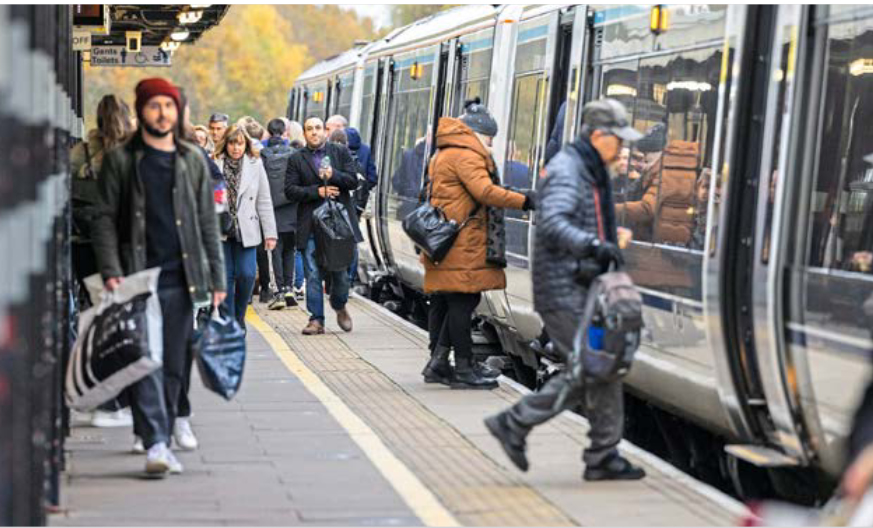
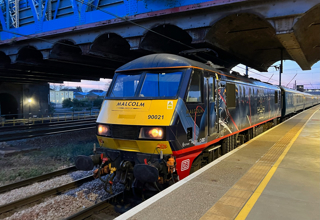
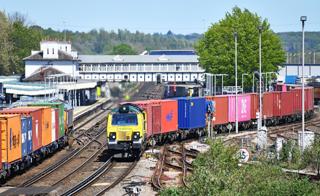
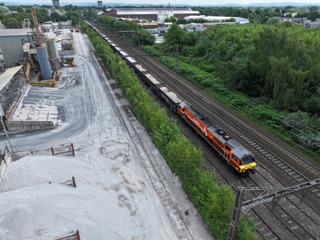
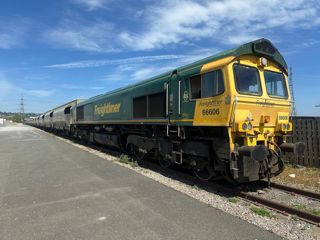
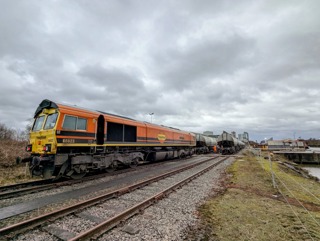










Andrew Gleeson - 17/01/2024 11:31
Good article, if we are creating a wish list, could I ask that we firstly, create a situation where GBR is made up of GBR + Network Rail + RDG (and all under one organisation), as opposed to having yet another separate body causing confusion in the industry. Secondly, clearly articulate what services are centrally controlled (by the new GBR) and what services are devolved, and then remove any duplication.